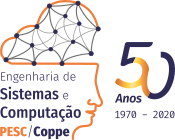Calendário de Eventos
|
Terça-feira, 03 Dezembro 2024, 12:00 - 13:00
Semana PESC 2024: Scientific Machine Learning and Quantum Utility: A Near Future Perspective
D.Sc. Alberto Costa Nogueira Junior (IBM Research)
 |
Scientific Machine Learning and Quantum Utility: A Near Future Perspective
D.SC. Alberto Costa Nogueira Junior (IBM Research)
Lattes aqui Dia 03/12 (terça-feira), 12 horas, Sala H-324B
Transmissão ao vivo no Canal do PESC no YouTube clicando aqui
|
Resumo:
In 2021, Gartner Inc., a global leader in information technology research and advisory, identified Physics-Informed Machine Learning (PIML) as one of the most promising AI technologies for the next decade. PIML seamlessly integrates data with mathematical models, even in complex, uncertain, and high-dimensional contexts, utilizing neural networks or traditional regression techniques in a meshless and straightforward manner. This talk traces the evolution of PIML within IBM Research, beginning with our early experiments using Physics-Informed Neural Networks (PINNs) to address seismic wavefield problems. We will discuss both the strengths and limitations of PINNs and the challenges of applying them to real-world engineering and environmental issues. Next, we explore the development of Reduced Order Models (ROMs) for creating low-dimensional representations of high-fidelity systems, with applications to ocean and atmospheric circulation, pollution dispersion, and extreme sea surface height modeling. Finally, we will present a forward-looking perspective on extending the Non-Intrusive Operator Inference (OpInf) method into a hybrid quantum-classical algorithm. By leveraging its simple mathematical structure based on regularized ridge regression, we aim to harness quantum hardware speed-up for future advancements.
Short Bio:
Alberto Costa graduated in Mechanical Engineering from the State University of Campinas, Unicamp, in 1994. He participated in the exchange program for engineering students at the Institut National Des Sciences Appliquées de Lyon, France, from July 1992 to November 1993. He holds a Master's degree and a Ph.D. in Mechanical Engineering from Unicamp (1998 and 2002, respectively), He also concluded two post-doctorates in Computational Fluid Dynamics (CFD), one at the Faculty of Civil Engineering, Unicamp (2004), and the other at the Brazilian Aerospace Institute (IAE), DCTA (2006). For nearly a decade (2004-2013), Alberto led Thorus Scisoft Technology company and accumulated significant industrial and innovation experience as a technology entrepreneur. His areas of expertise cover many branches of Numerical Analysis, Computational Mechanics, and Scientific Machine Learning (SciML) such as High-order Discontinuous Galerkin Method (DGFEM), Spectral Element Method (SEM), Finite Element Method (FEM), Finite Volume Method (FVM), compressible and incompressible flows, turbulence modeling, chaotic dynamical systems, Physics-Informed Neural Networks (PINNs), Neural Operators (NO) and Reduced Order Models (ROMs). Since May 2013, he has held a position at the IBM Research Lab in Brazil as a research scientist. In May 2020, he took over leadership of the IBM SciML modeling team in developing state-of-the-art ROMs to tackle climate change. Alberto is the principal evangelist of the IBM-born open-source project SimulAI (https://github.com/IBM/simulai), a scientific toolkit designed to be a high-level collection of machine learning techniques for Physics-Informed applications. In 2024, he embarked on the Quantum Utility Era pioneered by IBM and adopted Quantum Scientific Machine Learning (QSciML) as his top-priority learning topic. One of his short to medium-term career goals is to "quantize" SimulAI's SciML features.







